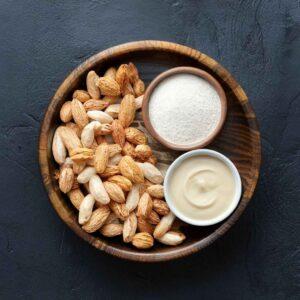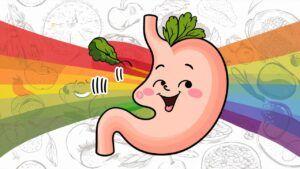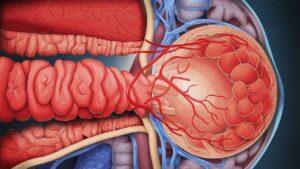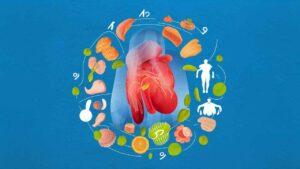Embarking on a gluten-free and dairy-free diet journey can be a transformative experience, offering a myriad of health benefits that extend well beyond mere weight loss. Whether driven by medical reasons, such as celiac disease and lactose intolerance, or personal health preferences, the advantages of adopting this dietary lifestyle are numerous. In this comprehensive guide, we’ll explore the benefits of a gluten-free and dairy-free diet, backed by scientific evidence, and provide practical tips to help you successfully navigate this dietary transition. Along the way, we’ll enrich our discussion with relevant images to enhance understanding and engagement.

The Impact of Gluten
Gluten, or the gluten protein, is found in wheat, barley and rye products as well as their derivatives. While most individuals find gluten harmless, for others it can lead to serious health problems that necessitate its avoidance:
Celiac Disease:
Celiac disease is an autoimmune condition in which gluten consumption damages the small intestine, affecting approximately one percent of people globally. When individuals with celiac consume gluten, their bodies respond with an immune response which directly attacks it causing diarrhea, abdominal pain, bloating, malnutrition and other symptoms such as diarrheal discomfort.
Non-Celiac Gluten Sensitivity (NCGS):
People living with NCGS often exhibit similar symptoms to celiac disease, including foggy mind, depression, abdominal pain, bloating, diarrhea or constipation – without experiencing the associated autoimmune damage in the intestinal lining. Studies are still being done into its prevalence but researchers believe its rate to be greater.
Wheat Allergies:
Wheat allergies are an allergic response to proteins found in wheat products such as gluten. Symptoms can range from mild (rash, hives, itching or swelling) to severe reactions such as difficulty breathing, wheezing and even anaphylaxis.
The Impact of Dairy
Dairy products derived from milk may present significant health challenges to some individuals:
Lactose Intolerance:
Lactose intolerance refers to an inability to digest lactose, an abundant sugar found in milk and other dairy products. This condition often occurs as a result of lactase deficiency which breaks down lactose during digestion resulting in symptoms like bloating, diarrhea and abdominal cramps following consumption of dairy products.
Milk Allergy:
As opposed to lactose intolerance, which involves digestive system disorders, milk allergy involves the immune system. When someone with this allergy consumes dairy products like casein or whey proteins (which contain allergenic components such as casein or whey), their immune system recognizes them as harmful substances and triggers an allergic response resulting in severe symptoms including vomiting, hives, or even anaphylaxis in extreme cases.
Hormonal and Inflammatory Issues:
Dairy consumption has been linked with hormonal imbalances and an increase in inflammatory responses in some individuals, including increased acne cases and flare-ups caused by its hormone content (i.e. cow’s milk hormones can interfere with human hormone function, leading to acne breakouts), while dairy may exacerbate conditions like acne, eczema and arthritis in susceptible people.
Health Benefits of Gluten-Free and Dairy-Free Diet:
For the general population, gluten and dairy can be part of a healthy, balanced diet. However, for those experiencing adverse effects, removing these foods can lead to significant improvements in health and well-being. As we saw, Gluten is a protein found in wheat, barley, and rye grains, while dairy refers to animal-sourced milk products like cheese. Gluten and dairy consumption have been known to cause health issues ranging from mild discomfort to serious allergic reactions for some people; adopting a gluten- and dairy-free diet eliminates these potential irritants to create a healthier lifestyle and greater comfort for everyday living.
Improved Digestive Health

For individuals with celiac disease or gluten sensitivity, removing gluten can lead to significant improvements in digestive symptoms, including less bloating, gas, and diarrhea. Similarly, those with lactose intolerance can experience reduced bloating, stomach pain, and other digestive issues by eliminating dairy.
Enhanced Weight Management

By cutting out gluten and dairy, many find it easier to manage their weight. This is often due to the reduction in processed foods, which are high in calories and low in nutrients, leading to healthier eating habits.
Reduced Inflammation

A gluten-free and dairy-free diet can lower inflammation, particularly in those with autoimmune disorders. Chronic inflammation is linked to several health issues, including heart disease and diabetes, so reducing it can have widespread health benefits.
Better Energy Levels and Mental Clarity

Eliminating gluten and dairy from your diet can bring about profound improvements in both daily vitality and cognitive sharpness. Individuals often report experiencing an impressive drop in mental fog, replaced with increased alertness and clarity.
Lower Risk of Chronic Diseases

Adopting a diet free from gluten and dairy has been associated with a lower risk of developing certain chronic diseases, including heart disease, diabetes, and certain cancers. This protective effect is thought to stem from a diet higher in fruits, vegetables, and lean proteins.
Tips for Adopting a Gluten-Free and Dairy-Free Diet
- Educate Yourself: Know which foods contain gluten and dairy to ensure a more successful transition to a diet without them
- Read Labels Carefully: Gluten can often be hidden within processed food packages.
- Focus on Whole Foods: Include more fruits, vegetables, lean meats and gluten-free grains when creating your meal plan.
- Experiment with Alternatives: Experiment with gluten-free bread and pasta as well as dairy-free milk and cheese alternatives until you discover which are your favorites.
- Plan Ahead: Make meals and snacks ahead of time to prevent running out of suitable options unexpectedly.
Bottom-line:
Adopting a gluten- and dairy-free lifestyle may present its own set of challenges, yet its potential health advantages can be enormously rewarding. From better digestive health and weight management, to reduced inflammation and an overall lower risk of chronic diseases – the rewards can be life-altering. With careful planning and an emphasis on whole, unprocessed foods, anyone can reap its rewards.
FAQs
Q: Will I need to give up all my favorite foods?
Not necessarily! Delicious alternatives to gluten and dairy-containing foods exist, allowing you to experience similar flavors and textures without incurring adverse health implications.
Q: Is a gluten-free and dairy-free diet more expensive?
It can be, especially if you opt for processed gluten-free and dairy-free products. However, focusing on whole foods can help keep costs down.
Q: Can I still eat out?
Yes, if you are not allergic. If you are allergic, it requires careful menu selection and clear communication with the restaurant staff about your dietary needs.
Related Article: https://ilovehealthystuff.com/easy-gluten-free-and-dairy-free-diet-options/
